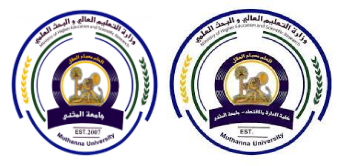Employing Skillful Leadership Behaviors to Promote Creative Work Behavior an Exploratory Study of the Opinions of A Sample of Faculty Members in the Faculties of the University of Al-qadisiya
- Post by: Muthanna mjdes
- October 11, 2022
- Comments off
Saleh Abdul Reda Rashid and Zainab Hamid Mazhar
Al-Qadisiyah University/ College of Administration and Economics/ Business Administration Department
Abstract
The aim of this study was to investigate the extent to which the behavior of the ambidextrous leadership of headdepartments influenced the innovative behavior of the faculty members in the faculties of Alqadisiyah University.Behaviors of ambidextrous leadership were examined through two types of behaviors: opening behaviors and closing behaviors, while innovative behavior was tested through two types of behavior, namely, explorative innovative behavior, sub-branches exploration of opportunity, idea generation , and exploitative innovative behavior through sub branch idea promotion and idea implementation. A sample of faculty members was surveyed among the university faculties. The number of its members was (287). The questionnaire was adopted as the main tool for obtaining required data and a number of statistical methods were used to test hypotheses. The study reached a number of conclusions, the most important one is that the opening behavior of heads of scientific departments is reflected positively on the innovative behavior of faculty members in general and exploratory behavior in particular .The study came out with a set of recommendations, the foremost is the need to work on developing leadership skills of the teaching staff nominated for positions of leadership in how to deal with the discrepancy in the requirements of traditional activities of teaching and learning on the one hand , and those related to( R & D) activities on the other through introduction of specialized training courses in this the field.
DOI:10.52113/6/2018-8-1/8-27
